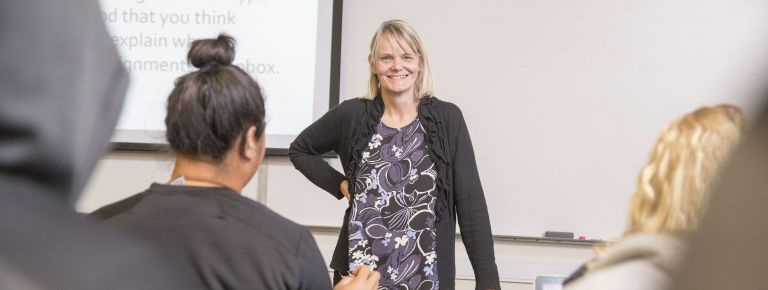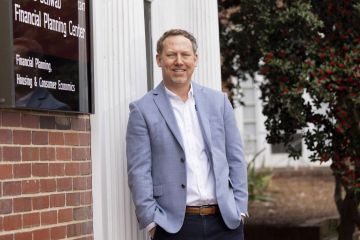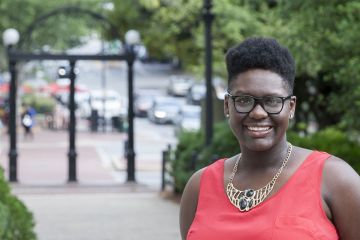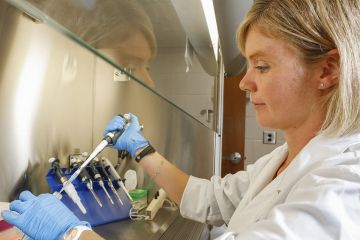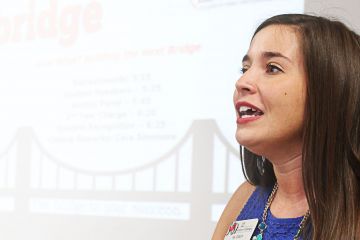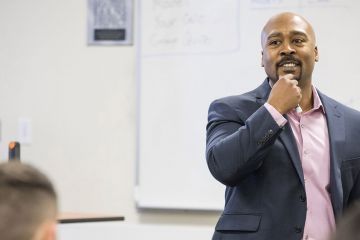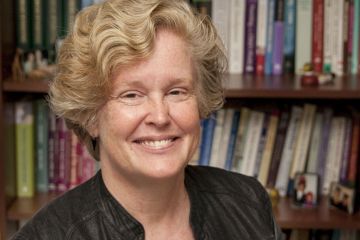Kim Skobba
Down in the heart of Appalachia, on a volunteer project with a home repair ministry, Kim Skobba had an awakening of sorts.
A Minneapolis-based public relations professional at the time, Skobba became “fascinated” with the idea of affordable housing.
“The people loved their homes so much and loved where they lived,” she said of the poverty-stricken natives the ministry served. “They lived in dilapidated housing in an impoverished town but wouldn’t move because they had such a tie to the land and the people. I wondered if it was possible to improve their community in a way that wouldn’t change what they valued.”
Skobba quickly took stock of her life, didn’t see herself in PR long-term, and went on to receive a master’s degree in design, housing and apparel from the University of Minnesota, then a Ph.D. while working in the non-profit housing sector for 10 years.
Her first job in academia brought her to the University of Georgia in 2011, where she works as assistant professor in the financial planning, housing and consumer economics department within FACS.
Her research focuses on the housing needs of low-income households and the relationship between community development and social capital in rural and small towns.
As an instructor, she has received steady praise for her engaging style of teaching that seeks to give students an active role in the classroom.
Students in Skobba’s service-learning classes have performed housing assessments of area neighborhoods, held listening sessions with residents of Lithonia on issues involving home ownership and recorded interviews with residents of an Athens public housing complex that was about to be demolished.
She has truly located the hidden route for positive change: a spirit that never, never quits.
She also co-taught the popular “tiny house” class last semester with College of Agricultural and Environmental Sciences faculty member David Berle, in which students learned about green building while constructing an actual tiny house that was donated to a farm in Sylvania through a partnership with Georgia Organics.
“Her ability to connect with students and communities and give hands-on experience is what I believe are the keys to her successful teaching,” said Malcolm Mitchell, former UGA football star who participated in the Lithonia project. “She has truly located the hidden route for positive change: a spirit that never, never quits.”
As a first-generation college graduate who earned her first degree as a non-traditional student, Skobba said her combined life experiences give her a unique perspective on engaging with a diverse student population.
A recent research project that investigated the barriers faced by college students who have experienced homelessness or foster care also has influenced her thinking as an educator, she said.
“I do feel it’s my mission in life to understand and address the pressing housing issues faced by people living in poverty,” Skobba said. “Basic needs are a big deal for me. Everybody should have their basic needs met, and if they don’t, we pay a price for that.”
Skobba, also a UGA Lilly Teaching Fellow, has received commendation from across campus for her efforts.
“Dr. Skobba has invested a level of commitment to promoting the academic development of students that is unmatched,” said Sheri Worthy, FHCE department head. “She is passionate about providing students with active learning experiences and has offered students multiple experiential learning opportunities. She is committed to teaching, research and service and is engaged in several creative projects that tie those three areas together.”
Kim Skobba
Title: Assistant professor of Housing Economics, Department of Financial Planning, Housing and Consumer Economics
Highlights: Recipient of 2016 Richard B. Russell Awards for Excellence in Undergraduate Teaching, which recognize outstanding teaching by faculty early in their academic careers; part of the Lilly Teaching Fellows program; 2016 Bill and June Flatt Outstanding Teacher of the Year (FACS); UGA Service-Learning Excellence Award
Started at UGA: Fall 2011
